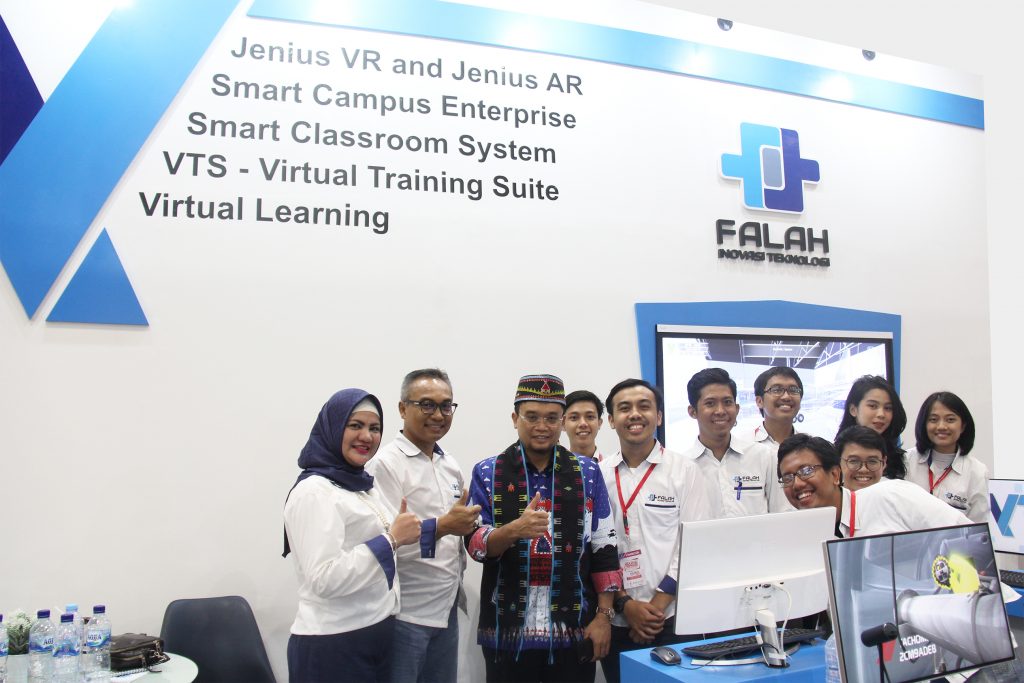Edutech Exhibition Seminar 2020 | “Indonesian education in the era of digital technology” in the “Application of Technology VR, AR, and MR in Education” was delivered by Noviayana as CEO PT. Falah Inovasi Teknologi . Student engagement is a ‘hot’ topic in education, if we could only engage young people they would thrive!, Educational technology in the form of virtual reality is a familiar innovation to several parts of the world.


The presence of virtual reality (VR), augmented reality (ar), and mixed reality (mr) technology has provided new options with 3D environment, the immersive nature of VR (Virtual Reality) makes it one of the most powerful tools in a teacher’s palm as it can engage different senses for students giving them a more holistic learning experience. Imagine traveling and exploring places all over the world without even leaving the classroom, imagine experiencing different careers first hand The decade’s old tradition of students sitting in seats will change as with the different types of ‘Realities’ being developed students will need to be up and moving around interacting with their environment and increase student engagement on many new levels.
In addition to providing students with immersive learning experiences, other benefits of virtual reality in education include the ability to inspire students’ creativity and spark their imaginations. And this can motivate them to explore new academic interests. VR,AR and MR in education also helps students struggling to understand difficult academic concepts. For example, through AR, geometry students can check out 3D geometric forms from multiple perspectives; they can rotate a shape to see it from different angles and even view it from the inside. The benefits of virtual reality in education go beyond academics as well to include cultural competence, the ability to understand another person’s culture and values—an important skill in today’s interconnected, global society. For example, a virtual reality field trip to other parts of the world, whether it be Peru or China, exposes students to cultures other than their own.
Growing evidence suggests that VR and AR in education, as well as the combination of both technologies known as mixed reality, can improve student outcomes, too. For example, in a March 2019 report, EdTech cites a study showing that students in a mixed reality biology classroom received higher scores than other students. And AR and VR can help with memory retention and recall, as well—EdTech reports on a recent study that shows an increase in retention of almost 9 percent for students who learned in an immersive environment such as VR.


